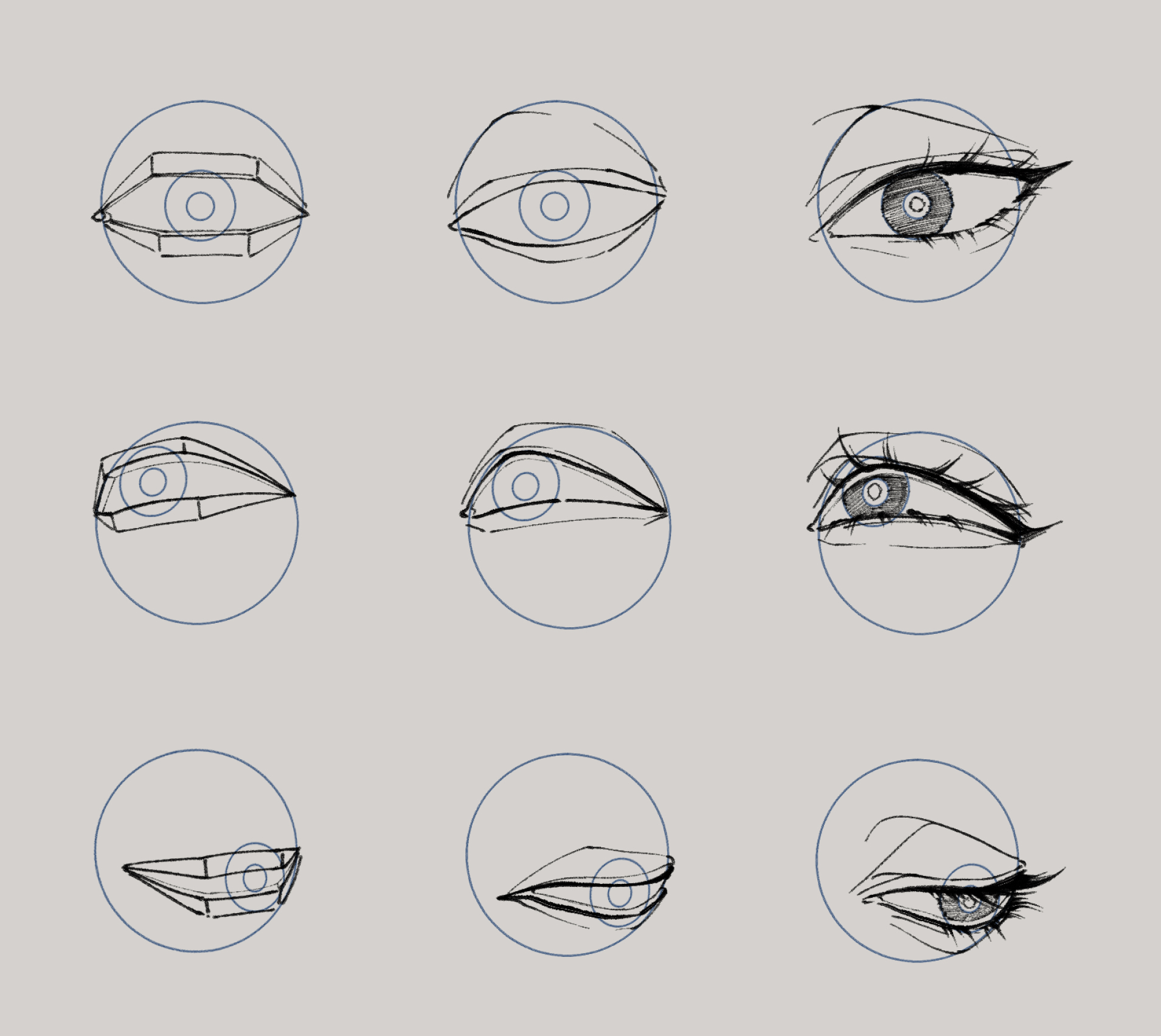Unlocking the Art of Wild Anime Eyes

Ever been mesmerized by the sheer expressiveness of anime eyes? Those vibrant, larger-than-life windows to the soul are a hallmark of the genre, conveying a spectrum of emotions from quiet contemplation to explosive rage. Mastering the art of drawing these dynamic eyes can seem daunting, but with practice and the right guidance, you can unlock your artistic potential and bring your characters to life.
Drawing anime eyes isn’t just about mimicking a specific style. It’s about understanding the underlying principles of anatomy, light, and shadow, and applying them in a stylized way. This journey begins with grasping the fundamental shapes and proportions that form the basis of any anime eye, then progresses to experimenting with different eye shapes, pupil sizes, and highlight placements to evoke a range of emotions and personalities.
The exaggerated features of anime characters, particularly the eyes, stem from the unique visual language developed in Japanese animation. These stylistic choices, heavily influenced by manga and earlier animation styles, emphasize emotional expression and character recognition. Drawing impressive anime eyes is crucial for conveying the essence of a character’s personality, making them relatable and memorable. However, the intricate details and subtle nuances can present challenges for aspiring artists.
One common difficulty is achieving symmetry and balance between the two eyes. Another is effectively using highlights and reflections to create a sense of depth and realism within a stylized context. Furthermore, understanding how different eye shapes and sizes can communicate specific emotions or character traits is essential for effective visual storytelling.
Let's delve into the process of drawing dynamic and expressive anime eyes. Start with a simple circle for the iris, then add an oval for the overall eye shape. Experiment with different iris sizes and shapes to achieve diverse effects. Smaller irises can suggest fear or surprise, while larger ones often convey innocence or wonder. Adding highlights, typically positioned near the top of the iris, brings the eyes to life, creating a sense of depth and luminescence. Remember, practice is key. The more you experiment, the more comfortable you'll become with manipulating these elements to create unique and compelling anime eyes.
The history of drawing expressive eyes in anime is intertwined with the evolution of manga and animation in Japan. Early anime styles drew inspiration from Western animation, but gradually developed their own distinct visual language, emphasizing large, emotive eyes. These exaggerated features became a key element in conveying character emotions and creating visual impact.
Let's define some key terms. "Bishojo" and "bishonen" refer to beautiful young female and male characters respectively, and their eyes are often drawn with particular attention to detail and expressiveness. "Moe" refers to a sense of cuteness or adoration, often conveyed through large, sparkling eyes. Understanding these stylistic conventions can help you tailor your drawings to specific character archetypes.
One benefit of learning to draw impactful anime eyes is enhancing your overall character design skills. Another advantage is the ability to express a wide range of emotions through your art. Finally, mastering this skill can be a stepping stone to pursuing a career in animation or illustration.
Advantages and Disadvantages of Focusing on Anime Eye Drawing
| Advantages | Disadvantages |
|---|---|
| Improved character design skills | Can be time-consuming to master |
| Enhanced ability to express emotions | May lead to neglecting other aspects of drawing |
| Potential career opportunities | Can be challenging to achieve realism within a stylized context |
Five best practices for captivating anime eye drawing include practicing basic shapes, understanding light and shadow, experimenting with different eye styles, studying real eyes for anatomical reference, and using references from existing anime and manga.
Frequently Asked Questions:
1. What are the basic shapes used in drawing anime eyes? (Circles, ovals)
2. How do I create different emotions in anime eyes? (Varying pupil size, eyebrow position)
3. What are some common mistakes to avoid? (Uneven eyes, inaccurate highlights)
4. What tools are recommended for drawing anime eyes? (Pencils, pens, digital software)
5. Where can I find tutorials for drawing anime eyes? (Online resources, art books)
6. How important is practice in mastering anime eye drawing? (Essential for improvement)
7. How can I develop my own unique anime eye style? (Experimentation, combining influences)
8. Are there different styles of anime eyes for different genres? (Yes, styles vary based on the target audience and tone)
Tips and tricks include using light lines for sketching, layering your shading, and using a kneaded eraser for highlights.
In conclusion, mastering the art of drawing crazy anime eyes is a rewarding journey that opens up a world of creative possibilities. By understanding the fundamental principles of shape, light, and expression, you can bring your characters to life and convey a spectrum of emotions through their captivating gaze. From the subtle flicker of sadness to the fiery intensity of determination, each eye tells a story. Embrace the challenge, practice diligently, and discover the power of expressive anime eyes to elevate your artwork and captivate your audience. This isn't just about drawing; it's about unlocking a new language of visual storytelling, one captivating glance at a time. So grab your pencils, unleash your creativity, and dive into the fascinating world of anime eye drawing. The journey may be challenging, but the rewards are immeasurable. With dedication and a keen eye for detail, you can transform simple lines and shapes into windows to the soul, breathing life and emotion into your characters. So, take the first step, explore the endless possibilities, and watch your artistic vision unfold.
Bright and airy exploring the allure of white kitchens with light gray cabinets
Remembering mary lou harris a life celebrated
Navigating california roads your drivers license handbook













